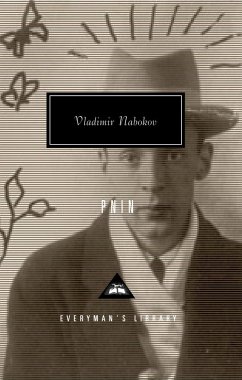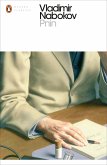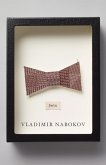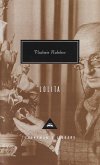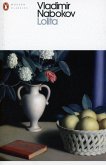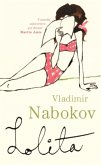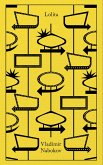One of the best-loved of Nabokov's novels, Pnin features his funniest and most heart-rending character. Professor Timofey Pnin is a haplessly disoriented Russian émigré precariously employed on an American college campus in the 1950s. Pnin struggles to maintain his dignity through a series of comic and sad misunder-standings, all the while falling victim both to subtle academic conspiracies and to the manipulations of a deliberately unreliable narrator. Initially an almost grotesquely comic figure, Pnin gradually grows in stature by contrast with those who laugh at him. Whether taking the wrong train to deliver a lecture in a language he has not mastered or throwing a faculty party during which he learns he is losing his job, the gently preposterous hero of this enchanting novel evokes the reader's deepest protective instinct. Serialized in The New Yorker and published in book form in 1957, Pnin brought Nabokov both his first National Book Award nomination and hitherto unprecedented popularity.
Hinweis: Dieser Artikel kann nur an eine deutsche Lieferadresse ausgeliefert werden.
Hinweis: Dieser Artikel kann nur an eine deutsche Lieferadresse ausgeliefert werden.

Dean H., britischer Germanist in Deutschland, hatte ein einfaches Kriterium für gute Literatur. Wenn er dreimal an den Rand eines Buches "Wow!" schreibe, so warf er in eine recht akademische Kneipendiskussion ein, sei es gut. Da mussten wir herzlich lachen. Anschließend hatten wir Mühe, ihm seinen Lieblingsschriftsteller aus der Nase zu ziehen: Charles Dickens, den wir zuletzt in Kindertagen gelesen hatten. Zweite Lachsalve. Dickens? Weil er es verstehe, einfache Leute trefflich zu schildern. Betretenes Schweigen über so viel existentiellen Ernst. Am liebsten kaufte Dean gebrauchte Bücher, weil er den Geruch und den Gedanken an frühere Lektüren mochte. Sonst war er eher ein harter Knochen, ständig blank, Ovo-Vegetarier und immun gegen die Wirkung von Alkohol. Nur in einer Situation habe ich ihn nervös und laut werden sehen: Jedes Mal, wenn er - zurück in England - die Mitstudentin traf, die ihn während seines Deutschland-Aufenthaltes verlassen hatte, die Liebe seines damaligen Lebens.
Was hat das alles mit Romanhelden zu tun? Beim Nachdenken über meine Favoriten fiel mir auf, dass ich echte Menschen sehr viel lieber mag als Romanmenschen, was wohl daran liegt, dass man mit echten Menschen interagieren kann. Während der unnachahmliche Reiz von Romanen letztlich doch in der Position des Autors zu seinen Figuren und nicht in den Figuren selbst liegt. Der Autor interagiert statt unserer mit seinen Figuren, und wenn uns das Spiel gefällt, mögen wir sein Buch. Trotzdem mögen wir natürlich auch Romanfiguren unterschiedlich gerne, wofür es nur subjektive Gründe gibt.
Als ich kürzlich zum ersten Mal "Pnin" von Vladimir Nabokov gelesen habe, ein unfassbar gutes Buch, kam mir alles bekannt vor. Gleich habe ich den Titelhelden, einen kahlen Russen mit breiten Schultern, liebenswürdigem Akzent und der Bereitschaft zur unglücklichen Liebe ins Herz geschlossen. Dreimal und noch öfter habe ich an den Rand des Buchs nicht "Wow!", aber doch ein dreifaches Ausrufezeichen gesetzt. Ohne die Bekanntschaft mit Dean H. wäre das wohl nicht möglich gewesen. Diese heimatlose, tragikomische Würde muss man erlebt haben, um sie auch im Kleinsten zu verstehen. Drei an sich unbedeutende Nebenszenen haben mich besonders beeindruckt: Pnin, der in ein schlechtes Restaurant geht aus "Solidarität mit der Erfolglosigkeit", Pnin, der leidenschaftlich mittelmäßig Schach spielt, und Pnin, der uralte Leihbücher liest. Näher muss man dem wahren Leben in seiner ganzen Komik erst einmal kommen. Das kann man von Dean und Pnin lernen: Bei guten Büchern braucht man das Leben zum Vergleich, um zu erkennen, wie literarisch es ist.
UWE EBBINGHAUS
Alle Rechte vorbehalten. © F.A.Z. GmbH, Frankfurt am Main

